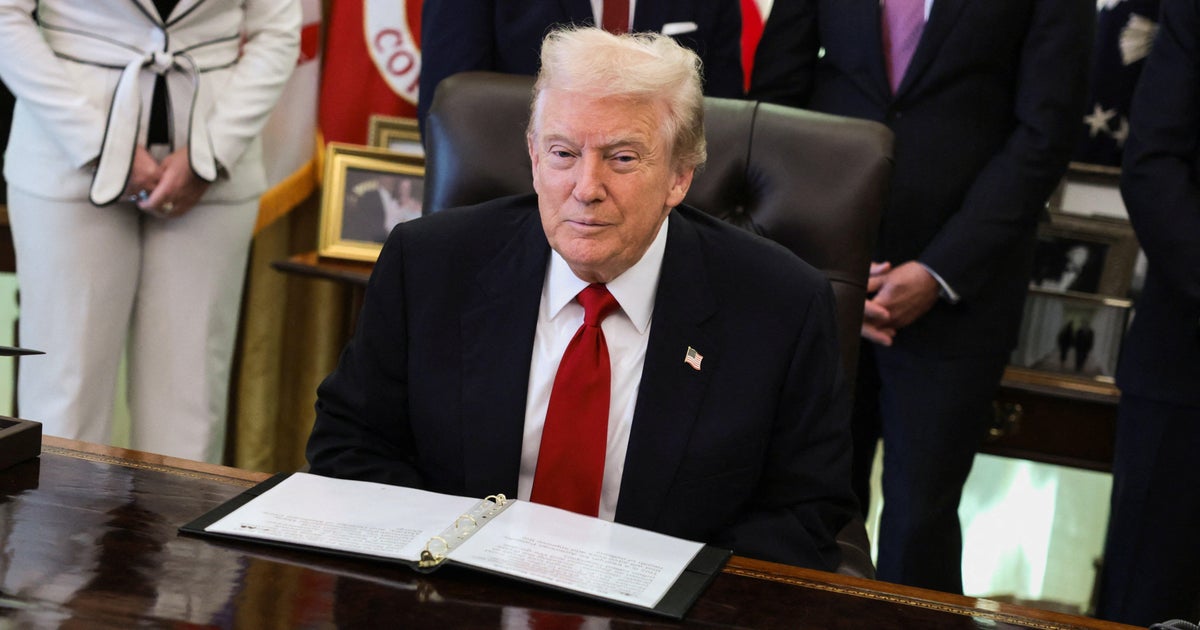President Trump on Thursday announced a deal to drastically lower the price of weight loss drugs for some Americans.
“Today, I’m thrilled to announce that the two world’s largest pharmaceutical manufacturers, Eli Lilly and Novo Nordisk, have agreed to offer their most popular GLP-1 weight loss drug — I call it the fat drug, remember — at drastic discounts,” the president announced in the Oval Office.
Eli Lilly, the maker of Zepbound, and Novo Nordisk, the company behind Ozempic and Wegovy, have agreed to lower the price of their weight loss drugs for eligible patients on Medicare, Medicaid and for eligible users of the planned “TrumpRx” pharmaceutical website, according to the White House.
The price per month for most eligible people will be $245 to $350 a month, administration officials said. The cost for the drug now is as high as $1,350 per month.
“You think it was easy dealing with these people? It wasn’t,” Mr. Trump said, referring to pharmaceutical company executives. Health and Human Services Secretary Robert F. Kennedy Jr. said this agreement took “months and months” of negotiations.
Mr. Trump said Eli Lilly and Novo Nordisk have also agreed to provide all their other medications at “most-favored-nation” prices, meaning Americans will pay a competitively low price like the consumers in other countries do.
TrumpRx, which is expected to launch as early as the end of this year, will allow customers to buy prescription drugs directly from pharmaceutical companies without going through insurance.
When purchased through TrumpRx, the cost will be around $350 per month for injections of Ozempic and Wegovy, officials told reporters on a briefing call. The new pricing will go into effect in January.
If the Food and Drug Administration later approves similar GLP-1 drugs intended to be taken orally, the initial dose of those pills will be $149 per month through TrumpRx, the officials said.
For eligible patients on Medicaid and Medicare, officials said the cost will be $245 for Ozempic, Wegovy, Mounjaro, and Zepbound. The Medicare copay is $50.
Administration officials hope the new pricing kicks in for Medicare in mid-2026, likely by July. For Medicaid, the timing will be based on states’ willingness to participate.
Not everyone will be eligible for the lowest prices. According to senior administration officials who briefed reporters on a call ahead of the president’s announcement, the lower costs will be available for the following Medicare patients:
Patients with a BMI over 27 who have also been diagnosed as pre-diabetic, or who have had a stroke, myocardial infarction or peripheral artery disease; Patients with a BMI over 30 who also have stage-three kidney disease or other qualifying comorbidities;Patients with a BMI over 35, which represents severe obesity.
Senior administration officials said they believe about 10% of Medicare patients will be eligible for the lower prices. The new pricing could save about $170 billion over time from the reduced risks of obesity in the Medicare population, one official said.
About 40% of Americans are obese, according to CDC data, though a recent survey suggests the rate has started to decline. Research shows obesity is one of the leading causes of preventable deaths in the United States.
“This is not about losing weight — this is about making America healthy again,” said another official on the call. “This is about preventing strokes, this is about preventing end-stage renal disease. So, given that, we are constraining the access for patients that will benefit clinically from it.”
The administration announced plans for the TrumpRx initiative earlier this fall, and has struck deals with several other major pharmaceutical companies. But some analysts say the “most-favored-nation” pricing being promised could have a muted impact on Medicaid patients, because the program already has a statutory “best price” protection that guarantees the lowest price offered to any U.S. commercial payer. Also, while it could save states money, Medicaid users typically don’t pay out-of-pocket for their medication.
Mr. Trump has previously floated the possibility of lower prices for weight loss drugs and expressed dismay about the high costs.
“I call it the fat pill or the fat drug,” he said at an event on drug prices in September. “Sometimes it works, I guess, for people. The ones I’ve seen, it hasn’t worked so well. I’ve got a lot of friends, they’re fat. They said, ‘Yeah, I lost some weight.’ I said, ‘Yeah, don’t look it to me.'”
contributed to this report.
More from CBS News

